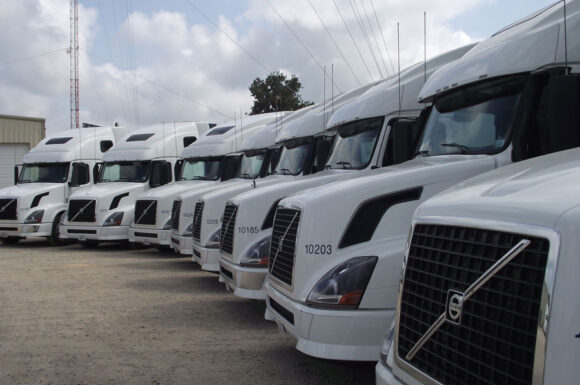A federal appellate court rejected a Texas trucking company’s attempt to force a California state agency to pursue a $6,180 fine for workplace safety violations in a Texas court.
Bulkley & Associates filed suit twice to challenge the California Department of Industrial Relations’ jurisdiction over its business, which is headquartered in the Dallas suburb of Brashear, Texas. The 5th Circuit Court of Appeals shot down the second lawsuit on Thursday, ruling that Texas courts did not have “personal jurisdiction” over the department.
Bulkley had argued that California has no jurisdiction over a company engaged in interstate commerce, even though its employee was injured while in California.
“Bulkley is an employer whose only involvement in the state of California is through engagement in interstate commerce, specifically the delivery to and pickup up from customers certain freight originating in or to be delivered to another state,” the company said in its pleadings. “Therefore Bulkley is not subject to the legislative power of the state of California at least with regard to its work rules and employee safety.”
The Department of Industrial Relations fined Buckley in 2015 after one of its drivers fell off a truck while picking up refrigerated goods at a customer’s facility in Salinas, California. The department’s Occupational Safety and Health Administration division cited Bulkley for failing to report the accident, for failing to implement and illness and injury prevention program and for failing to provide proper footwear to the truck driver.
Bulkley filed and administrative appeal in California and lost. The company then filed a lawsuit in Hopkins County court in Texas. The company argued that Texas has jurisdiction because it is a resident of Texas and the California state law that authorizes judicial review of agency actions directs litigants to the county court where they reside.
The case was removed to federal district court, which ruled that it lacked jurisdiction to hear the case.
Bulkley filed a second lawsuit in Hopkins County after it received a letter from the California Department of Industrial Relations in September 2019 stating that it would pursue a judgment in California court if it did not pay the fine. The department’s letter also threatened that it would inspect Bulkley’s “place of employment” if it did not confirm that the workplace safety violations had been remedied.
Bulkley argued that California regulators had in effect handed jurisdiction over to Texas courts by giving notice that it plans to conduct an inspection at its “place of employment,” which is in Texas.
The department again removed the lawsuit to federal court. A district court judge again ruled that it had no jurisdiction and dismissed the case. Bulkley appealed to the 5th Circuit.
Bulkley noted in its pleadings that California state law instructs parties that challenge workplace safety citations to file suit in the county where they reside.
“Perhaps the California Legislature did not provide alternative venue options because the Legislature never envisioned its agencies going so rogue as trying to regulate the work practices of non-resident employers,” attorney Erwin Cain wrote on behalf of Bulkley.
Deputy State Attorney Nelson Richards countered that Bulkley had appealed the citation through California’s administrative process, so clearly was able to operate within California. While Texas law does give the state’s jurisdiction over out-of-state defendants who “do business,” in Texas, the state of California does not do business in Texas simply by sending a resident notice of a fine.
The 5th Circuit panel examined three prior cases where it examined the authority of Texas courts over government officials for other states. In two of those cases, the courts found a Texas real estate business company that did business in Florida, California and Arizona could not avail itself to Texas law to challenge the authority of regulators in the states where it did business.
In a case titled Defense Distributed v. Grewal, the 5th Circuit did find in August 2020 that a Texas company that that distributed materials relating to the 3D printing of firearms could sue in Texas court to challenge an order by the state attorney general in New Jersey to cease doing business nationwide.
The appellate panel said the Grewal precedent does not apply in Bulkley’s case. Firstly, Cal-OSHA issued a citation for a violation that took place in California. Secondly, the laws mentioned in the letter to Bulkley are limited to persons and events within California.
About the photo: Trucks operated by Bulkley & Associates are shown in photograph posted on the company’s website.
Was this article valuable?
Here are more articles you may enjoy.


 Gas-Guzzler Revival Risks Dead-End Future for US Automakers
Gas-Guzzler Revival Risks Dead-End Future for US Automakers  Moody’s: LA Wildfires, US Catastrophes Drove Bulk of Global Insured Losses in 2025
Moody’s: LA Wildfires, US Catastrophes Drove Bulk of Global Insured Losses in 2025  Stellantis Weighs Using China EV Tech for Affordable Cars
Stellantis Weighs Using China EV Tech for Affordable Cars  Besieged Berkshire Utility Tries to Rewrite Who Pays for Wildfires
Besieged Berkshire Utility Tries to Rewrite Who Pays for Wildfires 